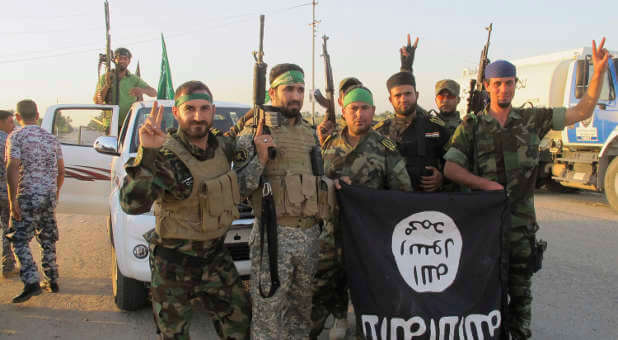If you thought the Middle East was confusing before, it just got a whole lot worse. Alliances are changing daily, borders are being redrawn, and countries thought to be allies of one side are becoming allies of the other.
ISIS or ISIL?
Just figuring out the real name of the bad guys is confusing. There has been a lot of speculation on whether the correct name to use is ISIS or ISIL, and what the difference is between the two. There is an easy explanation because both are translations of the original Arabic title of which the first three words are clear: Islamic State in Iraq. But, the translation of the last Arabic word Sham is much harder as there is no real English equivalent.
Sham was historically known as “Greater Syria” which is a vague area that encompasses modern Syria as well as Lebanon, Jordan, Israel, and more. So to translate Sham as just “Syria” is very misleading because it implies that ISIS only wants modern day Iraq and Syria.
That is why another translation uses the English term “Levant,” which is a vague but larger geographical area and is a better word than “Syria” to describe the territorial ambitions of the group.
Whereas ISIL is the better translation, most people use ISIS including yours truly. However, understanding the difference is helpful.
Is Islam Strengthening or a House Divided?
Another point of discussion taking place is whether Islam is getting stronger or is a house divided that is destroying itself. At heart the situation in the Middle East is a violent Sunni-Shi’ite war that is redrawing borders in order to form a contiguous fundamentalist Sunni state in the Levant. ISIS is gaining territory and support for a number of reasons, including popular unrest against old regimes.
But ISIS is also exposing the true nature of Islam. While the West may debate the nature of Islam, the Muslim world knows that this jihadist Islam is based on the Koran and life of Muhammad and can be seen as the “pure Islam.” ISIS is not doing anything that Muhammad himself did not do including beheadings and taking slaves as spoils of war. Therefore, they will gain the support of many Muslims.
But at the same time, some Muslims are beginning to speak out against this movement and advocate for a modernization of the Middle East with a more civilized society. Many are disgusted by this 7th century “pure Islam” and are seeking a better life. We should pray for them, that the Lord reveal Himself to them. May many find the Lord at this chaotic time.
The truth of the matter is that the divided house of Islam has already been weakening and this radical jihadist movement is a last-ditch attempt to return to the days of Islamic unity and glory by re-establishing the Caliphate (an Islamic state under one supreme religious and political leader, the Caliph, which is required in Shariah or Islamic law). It may look worse on the surface, but this movement is wreaking havoc on the house of Islam, and may be the violent earthquake needed to bring about much-needed change. The question is how long it will take and how many innocent lives will be sacrificed?
This process of change may take a very long time and be extremely violent, but it is very possible that Islam could lose its demonic grip on the minds and hearts of millions of people in the Middle East. We have seen this same phenomenon in Iran, a fundamentalist Islamic state, in which the younger generation now wants to leave their 7th-century Islamic society and enter the 21st century. It is no coincidence that the underground church in Iran numbers over one million, and some estimate as high as five million, souls.
A Time For Prayer
While it is difficult to understand the chaotic politics and growing schisms in the Middle East, we always know to pray: for the safety of Israel, for the persecuted church, and for souls to be saved. Never has there been a greater need for prayer than now.
Israel is in an increasingly dangerous situation as jihadist forces are now on most of her borders. The only peaceful border is with Jordan and it remains to be seen whether Jordan will be able to keep its territory and sovereignty under an ISIS assault.
The Christian communities of Iraq and Syria are being driven from their homes and countries with nothing but the clothes on their backs. Those who have survived are in refugee camps facing a very cold and deadly winter. Worse yet is the betrayal they feel as the western Christian world sits silent.
The Islamic world is a house divided and jihadists groups are not only destroying the lives of Christians and other minorities, but also brutally killing any Muslim standing in their way. A mighty prayer movement could birth many souls into the Kingdom. but it takes Christians who are willing to give of their time and energy in fervent intercession as watchmen on the walls of Jerusalem.
Susan Michael is the U.S. Director for the International Christian Embassy Jerusalem. To join the ICEJ’s global Isaiah 62 Prayer Initiative click here.














































